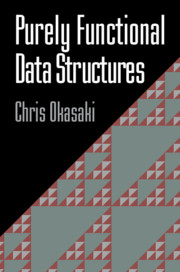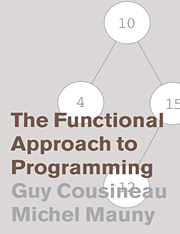Purely Functional Data Structures
Most books on data structures assume an imperative language like C or C++. However, data structures for these languages do not always translate well to functional languages such as Standard ML, Haskell, or Scheme. This book describes data structures from the point of view of functional languages, with examples, and presents design techniques so that programmers can develop their own functional data structures. It includes both classical data structures, such as red-black trees and binomial queues, and a host of new data structures developed exclusively for functional languages. All source code is given in Standard ML and Haskell, and most of the programs can easily be adapted to other functional languages. This handy reference for professional programmers working with functional languages can also be used as a tutorial or for self-study.
- Stresses techniques of data structure design rather than just finished products
- Source code in Standard ML and in Haskell, easily adaptable to other functional languages
- For professional programmers working with functional languages: can also be used as a tutorial or for self-study
Product details
No date availablePaperback
9780521663502
232 pages
227 × 153 × 18 mm
0.35kg
Table of Contents
- 1. Introduction
- 2. Persistence
- 3. Some familiar data structures in a functional setting
- 4. Lazy evaluation
- 5. Fundamentals of amortization
- 6. Amortization and persistence via lazy evaluation
- 7. Eliminating amortization
- 8. Lazy rebuilding
- 9. Numerical representations
- 10. Data-structural bootstrapping
- 11. Implicit recursive slowdown
- Appendix: Haskell source code.








